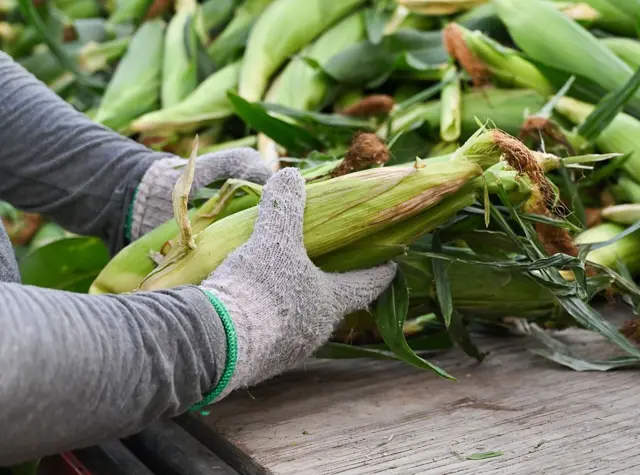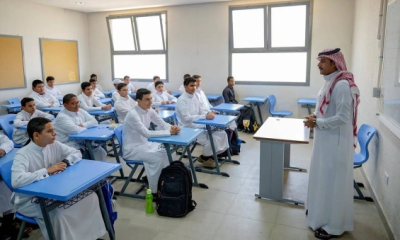NATIONAL NEWS
Nigerian NGOs Condemn NAFDAC DG’s Conflicting Statements On GMO Safety

A coalition of 82 Nigerian civil society organisations, researchers, farmers, women, and youth groups, representing millions of Nigerians, has strongly condemned what they perceive as inconsistent pronouncements from the Director-General (DG) of the National Agency for Food and Drug Administration and Control (NAFDAC), Prof. Mojisola Adeyeye, regarding the safety of Genetically Modified Organisms (GMOs).
The controversy arose after Prof. Adeyeye, in an interview with Channels Television on Thursday, August 8, 2025, stated that “genetically modified organisms, known as GMOs, particularly in food, are not harmful to human health, provided that safety protocols are followed.”
This statement sharply contrasts with her earlier stance expressed in June 2024 on Arise News Television, where she asserted that “NAFDAC does not consider GMO foods safe for consumption due to insufficient research and data at the agency’s disposal regarding their safety,” further emphasising that NAFDAC’s position would remain that GMOs are unsafe “until we get very convincing data to show the safety for human consumption.”
The coalition, including Health of Mother Earth Foundation (HOMEF), Environmental Rights Action (ERA), and the GMO-Free Nigeria Alliance, released a statement questioning the DG’s sudden shift in opinion.
“Why has the DG of NAFDAC changed her mind on the safety of GMOs? Where is the rigorous, independent, and long-term research that NAFDAC or the National Biosafety Management Agency (NBMA) has conducted to confirm that GMOs are safe for consumption, or what exactly informs this radical change of opinion?” the statement demanded.
Professor Johnson Ekpere, an Independent Consultant and Convener of the GMO-Free Nigeria Alliance, echoed these concerns, stating that “these agencies are yet to show evidence of a robust, long-term, and independent study, particularly feeding studies, to confirm that GMOs are safe.”
He cited a recent Iranian rat feeding study that linked GM soybean oil to liver and kidney damage, alongside similar studies linking GMOs to ttumoursand immune disorders.
“This sort of inconsistency and falsehood peddled by ggovernmentswthatare saddled with the responsibility to protect our health and environment is unacceptable,” he added.
The Executive Director of HOMEF, Dr. Nnimmo Bassey, highlighted concerns beyond health, eemphasisingthe potential for “long-term and possibly irreversible soil/environmental degradation.”
He referenced reports from the National Cotton Farmers Association of Nigeria, indicating that conventional crops are failing to grow on soils where pesticidal Bt cotton has been planted for three years.
He also pointed out the destructive effects of herbicide-tolerant GMOs on biodiversity and the rise of super weeds requiring increasingly toxic herbicide formulations.
A Medical and Molecular Microbiologist, Dr. Ifeanyi Casmir, warned about the impact of Bt crops on soil microorganisms and cited studies finding Bt toxins in pregnant women and fetal cord blood, raising the risk of birth defects, cancer, and allergies.
He criticised the NBMA’s lack of evidence of independent risk assessment, calling it “irresponsibility and lack of concern for public health.”
Barr. Mariann Bassey-Olsson, Deputy Executive Director of ERA, underscored the threat to Nigeria’s food sovereignty, citing the risk of genetic contamination of indigenous seed varieties and the dependence on foreign seed companies fostered by patented GMO seeds.
Joyce Brown, Director of Programmes at HOMEF, questioned NAFDAC’s oversight of processed food products llabelledas containing GMOs and highlighted past instances of questionable GMO approvals, including the WACOT Ltd maize importation debacle.
The coalition concluded titsstatement by calling on the Nigerian Senate to ban GMOs to protect indigenous seed varieties, human health, and the environment.
They also urged the government to address the root causes of food insecurity by supporting smallholder farmers and promoting agroecological approaches to food system challenges.
-
CRIME4 years ago
PSC Dismisses DCP Abba Kyari, To Be Prosecuted Over Alleged $1.1m Fraud
-
FEATURED4 years ago
2022 Will Brighten Possibility Of Osinbajo Presidency, Says TPP
-
FEATURED2 years ago
Buhari’s Ministers, CEOs Should Be Held Accountable Along With Emefiele, Says Timi Frank
-
BUSINESS & ECONOMY2 years ago
Oyedemi Reigns As 2023’s Real Estate Humanitarian Of The Year
-
SPORTS2 years ago
BREAKING: Jürgen Klopp Quits Liverpool As Manager At End Of Season
-
SPORTS2 years ago
Could Liverpool Afford Kylian Mbappe For €200 million? Wages, Transfer Fee
-
ENTERTAINMENT2 years ago
Veteran Nigerian Musician, Basil Akalonu Dies At 72
-
FEATURED2 years ago
Tribunal Judgement: Peter Obi Warns Of Vanishing Electoral Jurisprudence, Heads To Supreme Court
-
BUSINESS & ECONOMY2 years ago
Oyedemi Bags ‘Next Bulls Award’ As BusinessDay Celebrates Top 25 CEOs/ Business Leaders
-
FEATURED3 years ago
2023 Presidency: South East PDP Aspirants Unite, Demand Party Ticket For Zone



































